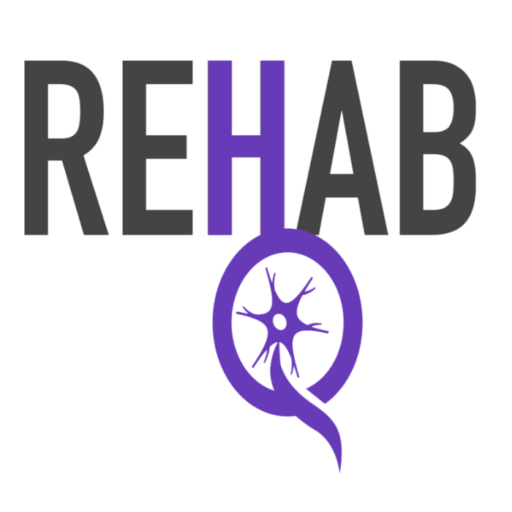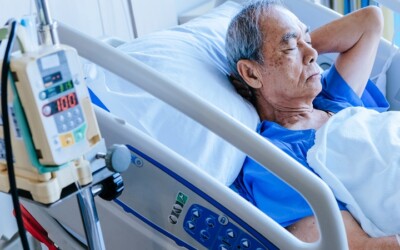Are You Missing the Nutrients That Help the Brain Heal Faster?
If you’re recovering from a stroke, you already know the process can feel slow, tiring, and confusing. You work hard on your exercises… but sometimes it still feels like your brain isn’t changing fast enough.
Here’s something most people never get told:
Your daily exercises aren’t the only thing that help your brain heal.
What you feed your brain may matter just as much as the exercises you do.
There are two nutrients that your brain leans on heavily after a stroke:
- Protein
- Creatine
How Protein Fuels Neurotransmitters
Protein (like chicken, eggs, beef, yogurt, or fish) is more than a food group, it’s the raw material your brain uses to communicate.
Here’s what makes it essential:
- It helps regulate appetite and blood sugar.
- It has a high thermic effect, meaning your body works harder to break it down.
- But most importantly for stroke recovery? Protein provides the amino acids that your brain uses to communicate, heal, and grow.
Those amino acids aren’t just floating around passively. They become neurotransmitters and growth factors, tiny chemical messengers and builders that your neurons rely to function.
Why Amino Acids Matter for Rewiring
After a stroke, your brain is working hard to build new pathways, almost like creating detours around damaged roads.
Amino acids give your brain the materials it needs to form new connections, strengthen the skills you practice in rehab, and support thinking, memory, and movement.
A few key examples:
- Dopamine (helps you stay motivated and focused)
- Serotonin (helps stabilize mood)
- Glutamate & GABA (help neurons turn signals “on” and “off” so learning and movement work properly)
When you’re rewiring your brain, learning to walk differently, speak differently, or coordinate new patterns, these neurotransmitters are the sparks and signals that help the new circuits form.
So yes, your repetitions matter.
But without protein?
You don’t have enough workers to build on the work you’re doing.
How Creatine Acts as the “Backup Battery” for Your Brain
Creatine often gets labeled as something only athletes use, but your brain depends on it too.
Your brain runs on energy called ATP. Every thought, every movement, every new connection uses ATP.
Here’s where creatine comes in:
- It helps your brain recharge ATP when energy runs low
- It supports learning and memory
- It gives your brain extra fuel during difficult tasks
Think of creatine as a portable charger you plug in when your brain is working hard, especially during rehab.
The important part:
Creatine only naturally comes from animal foods.
So if you don’t eat animal protein, you’re likely getting zero creatine from your diet. It’s a gap worth talking to your doctor about, especially during neurologic healing.
The REAL Connection Between Nutrition and Neuroplasticity
Protein gives your brain the building blocks, the scaffolding that supports new connections.
Creatine gives your brain the energy, the ability to power those connections into action.
Healing after a stroke isn’t about doing more all the time. It’s about doing the right things consistently and giving your brain what it needs to make the most of your efforts.
Neuroplasticity, the rewiring of the brain isn’t just about movement practice.
It’s about your brain having the energy and materials to make change happen.
Nutrition doesn’t replace rehab…
but it supports your rehab so your brain can make better progress.
Actionable Steps to Consider
1. Take an honest look at your protein intake.
Are you getting enough high-quality protein each day?
(Animal protein offers the full amino acid profile, but talk with your doctor or dietitian about what’s right for you.)
Try:
- Eggs
- Greek yogurt
- Cottage cheese
- Lean meats
- Fish
2. Ask your medical team about creatine.
A low-dose creatine monohydrate supplement is usually where people start.
Ask whether it’s safe for your kidneys, your medications, and your specific type of stroke.
3. Pair your nutrient support with intentional practice.
Once your brain has the raw materials and the energy, your therapy has a much better chance of sticking.
Choose one small movement or task that matters to you:
standing from a chair, stepping onto a curb, reaching into a cabinet
and practice it with intention.
4. Notice how you feel.
When your brain is well-fed, it often shows up in focus, attention, and energy.
Reflection Questions for Your Journey
What part of your recovery feels most “energy-draining” right now?
Could improved nutrition help support that?
Is there one small shift you could make this week, more protein with breakfast, or a conversation with your doctor, that could give your brain a little more fuel?
Does your current diet align with the healing your brain is trying to do?
If you’re ready for more structured guidance, feel free to explore our membership plans and take the next step toward the stronger, more confident version of yourself that’s waiting on the other side of this work. You can also schedule a discovery call to talk through your goals and challenges with someone who gets it.
Your brain is capable of more than you think.
Start fueling it like you believe that.
Articles you may be interested in
Why Eccentric Control Might Be the Missing Link in Your Stroke Recovery
Why Eccentric Control Might Be the Missing Link in Your Stroke Recovery After a stroke, movement rarely returns the way we’d like. Instead of smooth, controlled motion, you get stiffness... or those annoying synergy patterns—where every muscle seems to fire at once....
Why Plyometrics Matter After Stroke (Even if They Sound Scary)
Why Plyometrics Matter After Stroke (Even if They Sound Scary) Let’s start with the obvious: The word "plyometrics" sounds like something reserved for athletes, not stroke survivors.But stay with me—because if you’re in the later stages of recovery, this could be the...
Stages of Motor Learning Post Stroke
Why Everything Feels So Hard (and What That Actually Means for Your Recovery) If you have ever said: “Why is this so hard?” “I could do this yesterday—why not today?” “Why can’t I remember how to move?” You are not alone. If you’ve had a stroke and you're in rehab,...
Blocked, Random, or Distributed? How to Choose the Right Practice Schedule in Stroke Recovery
Blocked, Random, or Distributed? How to Choose the Right Practice Schedule in Stroke Recovery Let’s talk about one of the most overlooked pieces of stroke recovery: How you practice. Not what…Not how long…But how the practice is structured. Because believe it or not,...
You have just had a stroke. Now what?
You’ve Just Had a Stroke. Now What? Acute Phase Recovery Guide – What to Expect in the First Few Days First Things First… If you’re here, you or someone you love has likely just had a stroke. Let’s pause for a moment and say what most people won’t: This is...
Gravity Matters: How to Use It (or Remove It) in Stroke Recovery
Gravity Matters: How to Use It (or Remove It) in Stroke Recovery When I say "use gravity to your advantage"… what I really mean is: be strategic. One of the biggest mistakes I see in rehab (especially home programs) is doing exercises that are technically correct—but...
Use Synergy Patterns Sparingly (and Here’s Why That Matters)
Let’s talk about something that shows up in nearly every stroke recovery journey: synergy patterns. You might not know them by name. But if you’ve ever noticed your arm “wants” to move in one big sweeping motion (instead of just lifting your hand)… or if your leg...
Best Arm Rehab Post Stroke
Discover how new research is changing what’s possible for stroke survivors with little to no arm movement. https://youtu.be/Bw-rd1Fx02cWhat if I told you that even if you can’t move your arm after a stroke, there are still powerful ways to promote recovery—and...
Food Is Fuel—and Medicine: Why Nutrition Shapes Your Recovery
What you eat might be the most powerful rehab tool you're not using. Nutrition isn’t just about weight or willpower. It’s not about which diet is trending this year. And it’s definitely not about perfection. It’s about function. And when your brain is trying to heal,...
Stroke Recovery Essentials: 4 Non Negotiables For Brain Healing
We talk a lot about exercises in stroke recovery. But here’s the truth: recovery doesn’t start with movement—it starts with oxygen. When a stroke cuts off blood flow, your brain enters a chemical storm. Inflammation surges. Oxidative stress damages neurons. The...













